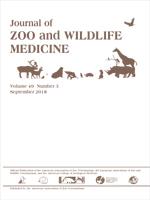As modern zoos evolved from menageries, quarantine practices were developed to protect animal collections from the introduction of diseases that might arrive with new animals from wild populations and, more recently, from other managed populations. As the understanding of, and ability to diagnose, diseases grew tremendously in recent decades, quarantine protocols became more stringent and standardized as the tolerance for disease introduction decreased. These practices resulted in healthier animal collections, and the introduction of transmissible pathogens of concern became rarer. Sustainable population management in zoos has further lessened the reliance on taking animals from the wild, and the knowledge of disease risk in such situations has deepened. Today animals being transferred between modern zoological institutions have well-documented medical histories complemented with robust collection health histories. This improved understanding has reduced concerns about disease transmission in many cases. Consequently, more formal use of risk analysis to drive transfer-related examination, diagnostic testing, and quarantine decision making was adopted by a number of zoos and aquariums that have modified their quarantine practices and use risk analysis to reduce quarantine requirements, in some cases moving animals directly into collections after transportation. This commentary discusses the rationale for and changes to quarantine processes for animal acquisitions in zoos and aquariums, using risk analysis to direct decision making.
How to translate text using browser tools
1 September 2018
RISK ANALYSIS: CHANGING THE QUARANTINE PARADIGM?
Geoffrey W. Pye,
Michael J. Adkesson,
Amanda Guthrie,
Leigh A. Clayton,
Donald L. Janssen
ACCESS THE FULL ARTICLE
Animal transfer
aquarium
leadership
mitigation
zoo





